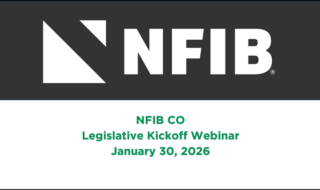January 5, 2021 Last Edit: March 4, 2025
Governor’s Veto Assures Small Business Tax Hike
On December 29 of 2020, Governor Whitmer used her line-item veto authority to eliminate a $220 million appropriation from the state’s general fund to bolster the state’s Unemployment Insurance Trust Fund. The appropriation was part of the COVID-19 relief bill passed by the Michigan legislature during the last week of the 2020 session. The fund transfer was supported by NFIB.
The governor vetoed this important funding measure from a bill that was intended to provide some relief for hundreds of thousands of small businesses suffering from the impact of her closure orders and restrictions. As a result, Michigan employers will see significant tax hikes in the coming years as the UI Trust Fund goes further into debt due to the state’s temporary extension of unemployment benefits from 20 to 26 weeks through the end of March 2021.
In October of this year, the legislature passed and Governor Whitmer signed legislation to extend unemployment benefits from 20 weeks to 26 weeks through December 31, 2020. This extension was necessary to codify the governor’s executive orders (that were declared unconstitutional) and avoid federal unemployment insurance penalties against employers.
As of now, it is unclear if the line-item veto will also roll back the temporary extension from 20 to 26 weeks as there was language in the COVID-19 relief bill that the extension would only go into effect if the legislature appropriated the $220 million to the UI Trust Fund to cover the cost. The governor has chosen to ignore the bill language and has directed the Unemployment Agency to proceed with the extension. It is likely that a legal challenge will be pursued, and the incoming 2021 legislature will have to deal with the governor’s actions.
The Unemployment Insurance system is 100 percent funded by employers through a payroll tax and any shortfalls or deficits due to a negative Trust Fund balance will have to be made up by all employers through their mandated payroll tax.
NFIB is a member-driven organization advocating on behalf of small and independent businesses nationwide.
Related Articles














